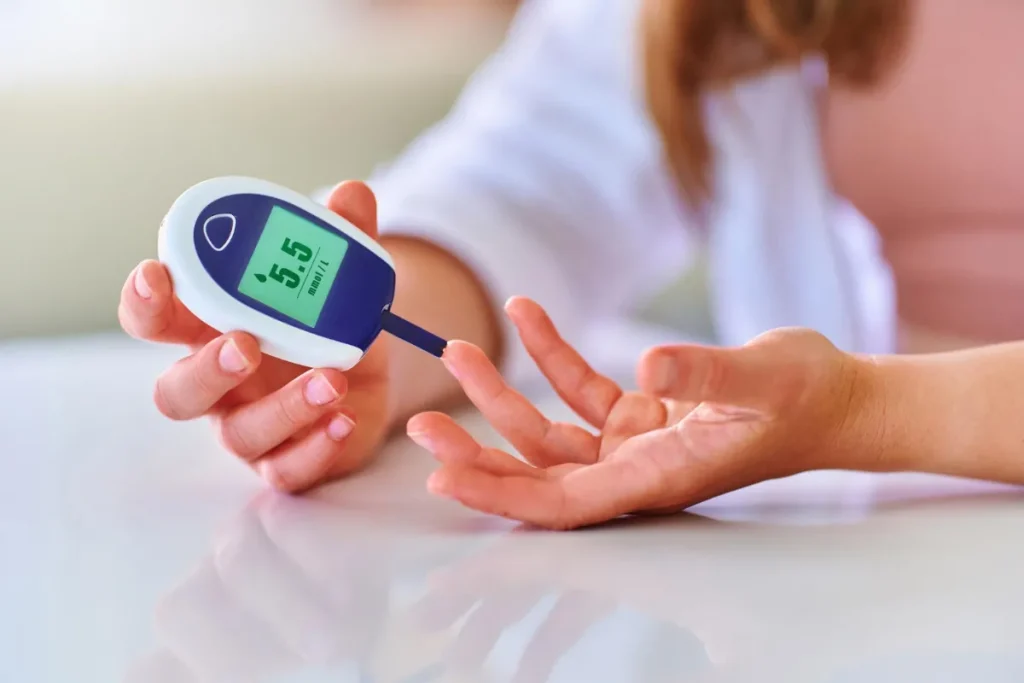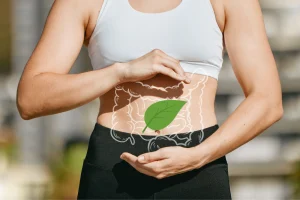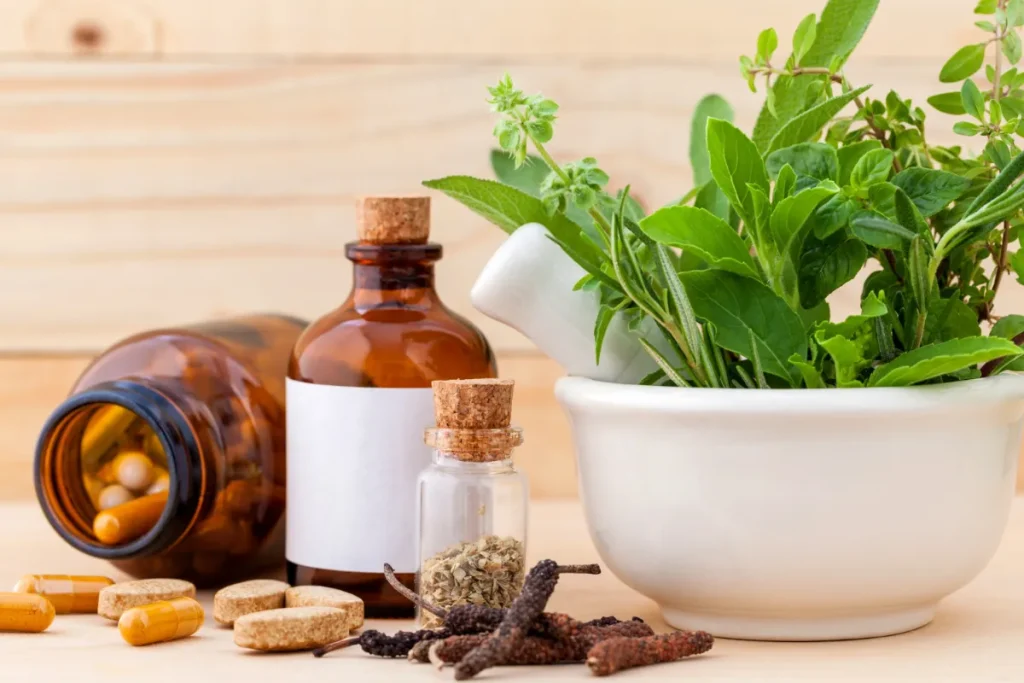

Ayurveda views diabetes as a metabolic disorder caused by an imbalance in the body’s doshas – Vata, Pitta, and Kapha. According to Ayurveda, there are four subtypes of diabetes known as Prameha, each associated with a specific dosha.
 Vataja Prameha
Vataja PramehaIncreased urination, a dry mouth, and weight loss are the hallmarks of this form of diabetes caused by an imbalance in the Vata dosha.

Pittaja Prameha
An imbalance in the Pitta dosha, which results in increased thirst, a burning feeling, and inflammation, causes this form of diabetes.
 Kaphaja Prameha
Kaphaja Prameha
This form of diabetes, caused by an imbalance in the Kapha dosha, presents increased mucus production, weight gain, and lethargy.
 Sannipataja Prameha
Sannipataja PramehaThis type of diabetes is caused by an imbalance in all three doshas and shows symptoms of Vataja, Pittaja, and Kaphaja Prameha.

Genetic Inheritance

Physical Inactivity

Hormonal Imbalance

Obesity

Pregnancy

Certain Medications

Symptoms of type 1 diabetes can start quickly, in a matter of weeks. Symptoms of type 2 diabetes often develop slowly—over the course of several years—and can be so mild that they are not noticeable.
Common symptoms are:
The Panchakarma treatments for diabetes vary depending on an individual’s constitution (Prakriti), current imbalances (Vikriti), and overall health
status.
Here are some Panchakarma treatments that may be considered beneficial for managing diabetes:

This therapy involves therapeutic vomiting and is recommended for individuals with excess Kapha dosha. Vamana can help improve digestion, reduce body weight, and balance blood sugar levels.

Virechana is a purgation therapy that primarily targets Pitta dosha and cleanses the liver and intestines, promoting better digestion and metabolism.

Basti or medicated enemas involves using herbal oils and decoctions to cleanse the colon and nourish the body. Basti treatments may help regulate bowel movements and improve insulin sensitivity.
At Aadhiayurveda for Ayurvedic Diabetes Treatment, we personalise herbal preparations comprising the right proportions of different herbs to treat diabetes while nullifying their effects on other parts of the body. Some components include Bitter Melon, Gymnema Sylvestre, Cinnamon, Fenugreek, and a combination of Amla, Bibhitaki, and Haritaki.

Copyright © 2024 Aadhiayurveda, All Rights Reserved.